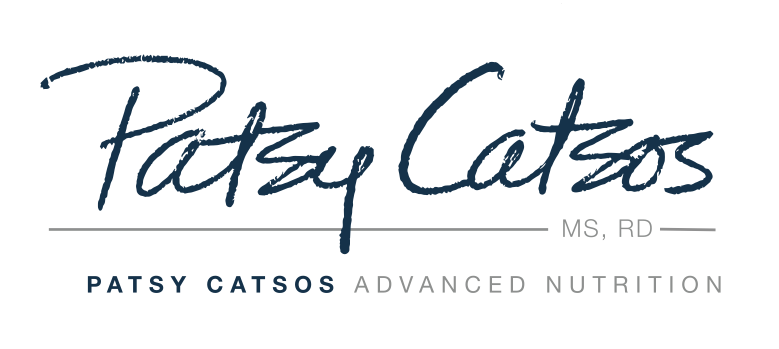Doctors, remember the days when you said it didn’t matter what patients with IBS ate? Those days are gone!
William Chey, MD of the University of Michigan recently shared the results of a survey he and his colleagues took of their peers. The results? As reported by Gastroenterology & Endoscopy News, more than half of gastroenterologists now recommend diet therapy to their IBS patients, with low-FODMAP* diet recommended about 57% of the time.
Low-lactose milk products like cheese are OK for low-FODMAP diets. Avoid the common provider pitfall of describing as a diary-free diet.
In Maine, where my patients have been using FODMAP-elimination diets for over 10 years, providers have seen the great results we get. They often now take the initiative to recommend low-FODMAP diets to their IBS patients. We are seeing this in both the primary care setting and at speciality practices. And why not? Low-FODMAP diets provide relief of IBS symptoms to 50-80% of patients. It's the most meaningful advice we've ever had to offer IBS patients.
If you are a physician or mid-level provider recommending low-FODMAP diets to your patients, congratulations on your savvy! You are offering your patients not just hope, but real relief! Today I'm sharing some tips to help you present the diet to patients safely and effectively, while avoiding some common pitfalls.
- FODMAP-elimination diet programs are for people who can restrict their diets safely. Are you skilled in screening patients for eating disorders, which are all-too-common among patients who present with GI complaints? Is your history-taking designed to elicit disordered eating behaviors and thoughts? Whenever advising patients on dietary change, please think carefully before giving a person with restrictive tendencies another reason to eliminate foods from his or her diet. If you are not confident in this area, please hold back on the FODMAP-elimination diet suggestion and refer to a nutrition or mental health professional for assessment.
- Know that a FODMAP-elimination diet is not a gluten-free, dairy-free diet. I know, I know, “gluten-free, dairy-free” is a tidy sound bite, and often well-received because it matches what patients are hearing elsewhere. But it amounts to throwing the baby out with the bathwater. A low-FODMAP diet is more nuanced (and less restrictive) than that. Many low-lactose milk products can still be enjoyed on a low-FODMAP diet. Sourdough bread, which contains gluten, can be part of a low-FODMAP diet. Particularly for patients with other nutrition-related medical problems, these are important distinctions.
- Recommend the right diet to the right patient. Patients who can benefit from the FODMAP approach have IBS or IBS-like symptoms such as abdominal pain, excess gas, bloating, diarrhea and constipation. A low-FODMAP diet probably won’t help anybody esle, and might expose them to unnecessary risk. Other people in the IBS patient's family should be advised to continue to eat healthy high-FODMAP foods.
- Understand that a FODMAP-elimination diet is a learning process, not a list of low-FODMAP foods. If you recommend a trial low-FODMAP diet, it’s important that you clearly communicate FODMAPs should be reintroduced after a few weeks to assess tolerance. A clear strategy for this important phase of the diet will help patients identify IBS triggers and narrow down the problem, with the goal being a modified, more liberal diet.
- Don’t refer patients to Dr. Google when you could refer them to a health care professional for nutrition services. Dr. Google can’t do your job, and he can’t provide medical nutrition therapy, either. Your patients no doubt appreciate your hesitation to recommend services that will be a financial burden on them, but it is a common mistake to assume that the services of a registered dietitian (RD or RDN) aren’t covered by insurance. Did you know that many private insurances and Medicare Advantage plans have good coverage for nutrition services? Have someone at your office make a few phone calls and locate a trained, in-network dietitian to refer to on a regular basis.
More information for providers:
Whelan K, Martin LD, Staudacher HM, Lomer MCE. The low FODMAP diet in the management of irritable bowel syndrome: an evidence-based review of FODMAP restriction, reintroduction and personalisation in clinical practice. J Hum Nutr Diet. 2018:239-255. doi:10.1111/jhn.12530.
Monash University Department of Gastroenterology Translational Nutrition Science Group. www.monashfodmap.com
University of Michigan Health System Division of Gastroenterology and Hepatology. myginutrition.com
This page may contain affiliate links. We are a participant in the Amazon Services LLC Associates Program, an affiliate advertising program designed to provide a means for us to earn fees by linking to Amazon.com and affiliated sites.


